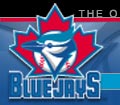July 25, 1999 Chess Master Breaks
Colour Barrier
ASSOCIATED
PRESS
NEW YORK (AP) --
Maurice Ashley talks about chess the way some people
describe their favourite poem or
painting. "It has a majesty; it has
a mystical beauty," he says.
"The pieces come alive when you know
what they can do."
Ashley has devoted
his life to chess, and at 33, he has caught a
dream -- and made history. This spring,
moving his bishop against an opponent's
queen, he fulfilled the final
requirements for becoming a chess grandmaster, the game's
highest rank. He is the first black
person ever to do so.
"It's just
been a whirlwind," Ashley says,
pausing to reflect at the Harlem middle
school where he coached a chess team until 1997. "I've
been thrilled and ecstatic and on a high
and unable to sleep."
There are only 45
grandmasters in the United States and 470
world-wide. So joining the uppermost
ranks of the elite and clubby chess world wasn't easy for a
Jamaican immigrant who spent much of his
adolescence honing his game in Brooklyn's
Prospect Park.
"Maurice
almost did it by himself," says
Jerald Times, a chess devotee who met Ashley in
the park a decade ago. "He didn't
have a whole Russian chess school, didn't have
grandmasters training him."
Ashley's casual
childhood interest in chess got serious when he played
a high school friend nearly 20 years ago.
"He just crushed me, and I couldn't
believe it," Ashley recalls with a
laugh. "We don't take any beatings
lying down in my family."
So at age 14 he
stuck his nose into a strategy book and
fell in love. "I was electrified by
the game," he says. "I found my
passion in life."
Ashley's young game
wasn't good enough to get him on the team
at Brooklyn Technical High School.
Defiant, he joined the Black Bear School
of Chess, a group of obsessed teens
and twentysomethings who played
rough-and-tumble games in Prospect Park
for hours on end.
He earned an
undergraduate degree in English at City
College and later coached the Mott Hall
Dark Knights, a Harlem middle school chess team.
Ashley loved
sharing his passion with young players,
and the team won three national
championships. But "there was
something that was missing," he
says, "and that was my own
aspirations."
In fall 1997, he
took leave from the Harlem Educational
Activities Fund, which sponsors the
middle school program and others in the
neighbourhood. With financial support
from the group's president, Ashley
devoted himself to chess full time, studying at his
home in the Park Slope neighbourhood and
flying to tournaments in Germany, France
and Hawaii.
A natural
competitiveness nurtured early on by an
immigrant mother anxious to see him
succeed kept Ashley focused and working
hard.
Competitors say
he's a cagey, aggressive player who never
misses a chance to gain an advantage on
the board. "You feel that if you
make the slightest mistake, you're going
to get crushed," says Times,
Ashley's long-time chess pal.
The new
grandmaster's intensity isn't always
visible. During matches, he'll often lean
his elbows on the table and hold his head
in his hands as he analyzes the board;
other times he leans back, looking
relaxed, as he ponders the pieces.
In March, Ashley's
single-minded devotion paid off. At a
tournament at the Manhattan Chess Club, which counts several
grandmasters among its members, Ashley
joined their ranks. He lost a
second-round game to the tournament's
lowest-ranked player, but he rebounded to
second place, earning the points he
needed for grandmaster status.
The coveted title
is earned by meeting rigorous
requirements in high-level tournaments
within a set period of time. Ashley's
victory carries special meaning.
"The
stereotype in this country is that
African-Americans don't do well at things
like chess," he says. "I
know how brilliant black people are ...
and I feel like my achievement is a small
drop to add to the wonderful intellectual
greatness of our heritage."
He hopes his
victory will inspire young minority
players, especially his former students
at Mott Hall. Ashley still strolls
smiling through the chess room there, giving tips and
pushing the serious young players to
think hard about every move. The kids say
he's become a role model.
"Because he
did it, he made me believe that I could
do it, because we're both minority,"
says Brian Ovalle, a seventh-grader with
roots in the Dominican Republic.
"It's like when Jackie Robinson
broke the colour barrier. They didn't
believe he could do it, but he broke
through."
Ashley would have
liked to have a black grandmaster to
emulate when he was young. "It was
tough ... not seeing any black
faces," he recalls.
"What I've
been blessed to do is show what's
possible."
If you wish to
submit something for this page please
email it to DutChess@idirect.ca
|



